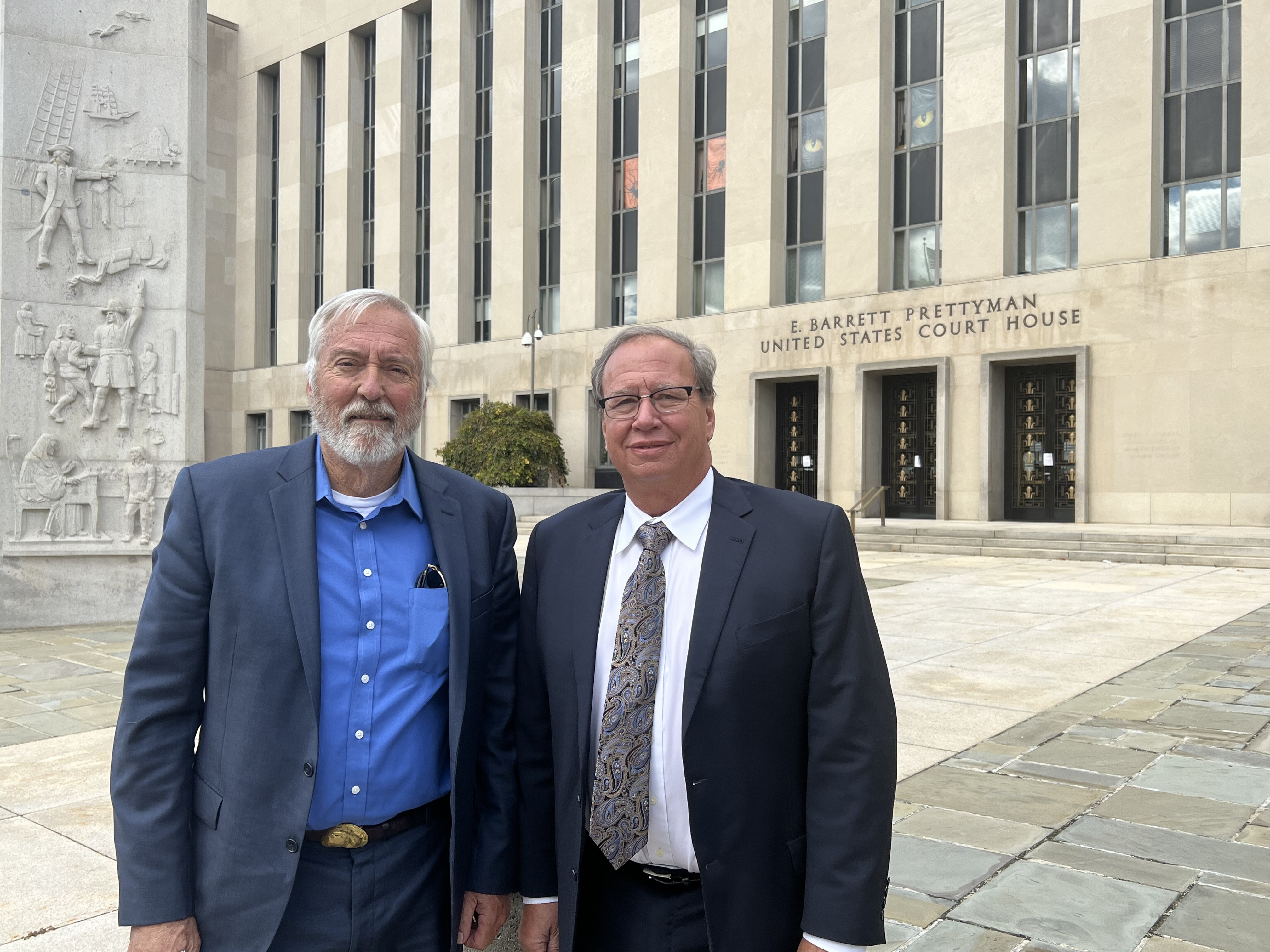Lawsuit Alleges Allocations Based on Flawed Data
WASHINGTON, DC / ACCESSWIRE / October 26, 2022 / Last week, the District Court for the District of Columbia heard a lawsuit challenging the legality of a federal reallocation of the red grouper quota in the Gulf of Mexico. The suit alleges that NOAA showed unlawful favoritism when it decided to raise grouper quotas for recreational fishermen at the expense of commercial fishermen, and that the result will harm the red grouper stock.
The Gulf Coast Seafood Alliance (GCSA) supports the Gulf of Mexico Reef Fish Shareholders' Alliance, Southern Offshore Fishing Association, and A.P. Bell Fish Company, who filed the suit, in their continuing efforts to challenge an unfair and unlawful decision by NOAA. GCSA members Dewey Destin and David Krebs attended the hearing, held at the federal courthouse in Washington, D.C.
Earlier this year, NOAA decided on a drastic reallocation of red grouper quota, as part of Amendment 53 to the Fishery Management Plan for the Reef Fish Resources of the Gulf of Mexico. The Amendment reduces the overall red grouper quota, while increasing the recreational share of the quota from 24 percent to 40.7 percent, and decreasing the commercial share from 76 percent to 59.3 percent.
The lawsuit challenges the allocation on the basis that it "unlawfully benefit[s] the recreational fishing sector, harm[s] the commercial fishing sector and seafood consumers, and jeopardize[s] conservation." It also alleges that the Amendment violates the conservation provisions of the Magnuson-Stevens Act, the federal law governing U.S. fishery management.
As part of its efforts to support the lawsuit, GCSA produced and filed comments outlining the flaws in the Amendment and the reallocation decision, including an insufficient analysis of the economic impacts of the decision. According to GCSA's analysis, the reallocation also violates several sections of the Magnuson-Stevens Act, the Administrative Procedure Act, and the National Environmental Policy Act.

The decision also relies on deeply flawed data about recreational fishing, specifically the Fishing Effort Survey (FES). Starting in the late 1970s, NOAA collected data on recreational fishing through phone surveys. The agency has since switched over to the FES, which is a mail-based survey. To reconcile the two different methods of data collection, NOAA tried to develop a calibration model that would re-estimate the data collected during the phone survey. However, the estimates produced by the model produced anomalies that do not align with data produced by Florida vessels. It is these flawed estimates that NOAA used to set allocations with Amendment 53. But, as GCSA's analysis notes, there appears to be insufficient information to determine that historical catch was different from the previous estimates, and therefore there is no basis for reallocation.
GCSA is hopeful that the District Court will see that NOAA made an unlawful decision based on a flawed process. Fisheries management needs to follow the law, and not benefit one sector at the expense of the stock and others that depend on it.
Related:
Despite Flawed Procedures, Economic Inaccuracies and Legal Precedents, NOAA Acts to Take Fish from Families, Markets, Restaurants and Consumers
Gulf of Mexico Reef Fish Shareholders' Alliance: Statement on Red Grouper Quota Instability
About GCSA
The Gulf Coast Seafood Alliance (GCSA) is an organization of stakeholders seeking a common goal: equitable and sustainable fisheries along the Gulf Coast for commercial and recreational use alike. Our members make up a diverse group of restaurant owners, chefs, vessel owners, and seafood market owners. GCSA members represent the entire spectrum of commercial fish production in the Gulf of Mexico, from harvest at sea, to processing, and ultimately to the end consumer - shoppers in markets and diners in restaurants.
Press Contact
Bob Vanasse
Stove Boat Communications
(202) 333-2628
[email protected]
SOURCE: Gulf Coast Seafood Alliance




